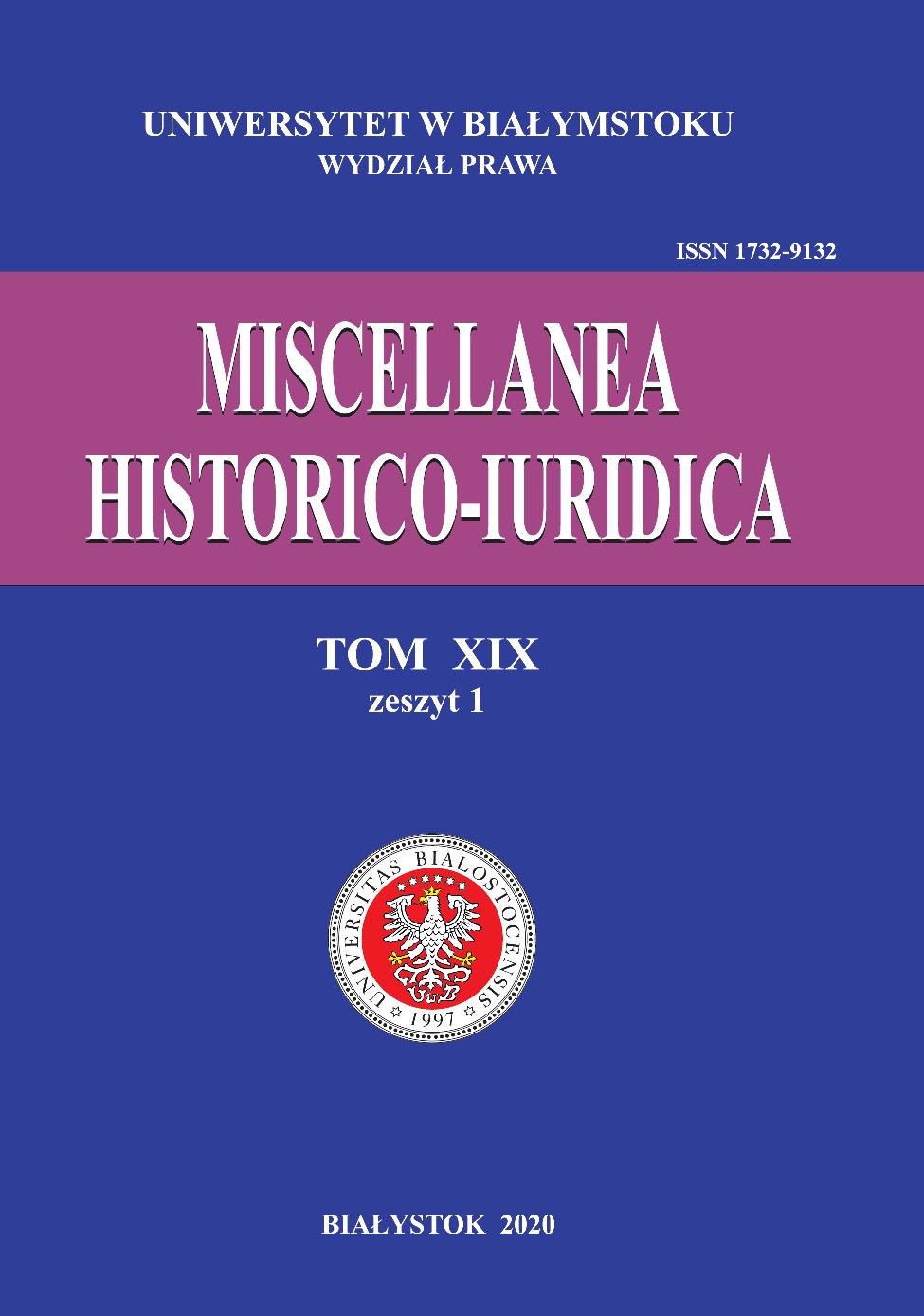Rola Kongresu haskiego w procesie powstawania Rady Europy i kształtowania prawnych uwarunkowań jej działalności
The role of the Hague Congress in the process of establishing the Council of Europe and shaping the legal conditions of its activity
Author(s): Daniel MilewskiSubject(s): History, Law, Constitution, Jurisprudence, History of Law, Recent History (1900 till today), WW II and following years (1940 - 1949)
Published by: Wydawnictwo Uniwersytetu w Białymstoku
Keywords: Hague Congress; Congress of Europe; Council of Europe; European Movement; Treaty of London; European integration
Summary/Abstract: The paper aims to present the circumstances and results of the event of crucial importance for European integration, which was the Hague Congress convened in 1948, as well as to present the impact of its resolutions on the process of laying the foundation for the Council of Europe and shaping the legal conditions for its functioning. The paper describes different events that are part of the integration actions undertaken on the Old Continent after World War II, including and discussing in detail the characteristics of the Congress of Europe in The Hague. On the basis of the resolutions adopted at that time, the paper analyses the circumstances and arguments in favour of the solutions put in place in the following years. The article indicates the numerous provisions of the Hague Congress resolutions which have been implemented in the process of the subsequent European integration. The description and the axiological background of the decisions made in 1948 allow a better understanding of the origins of the many institutions and processes that influenced the shaping of Europe’s legal culture over the past few decades. In addition, the article presents a broad catalogue of the figures involved in the organisation of the Hague Congress, together with their affiliation with the different views on the scope of integration. The references to source texts and literature highlighting the background of the creation of the Council of Europe make it possible to understand more fully the basis for its mission concerning the strengthening of the democratic stability and the rule of law on the continent. Ultimately, by linking the legal bases of the functioning of the Council of Europe with a description of the foundations on which it was created, the article gives us an answer to the question of why the Council of Europe has developed its own modus operandi and its own methods of influencing the legal systems of the Member States.
Journal: Miscellanea Historico-Iuridica
- Issue Year: 19/2020
- Issue No: 1
- Page Range: 461-481
- Page Count: 21
- Language: Polish

